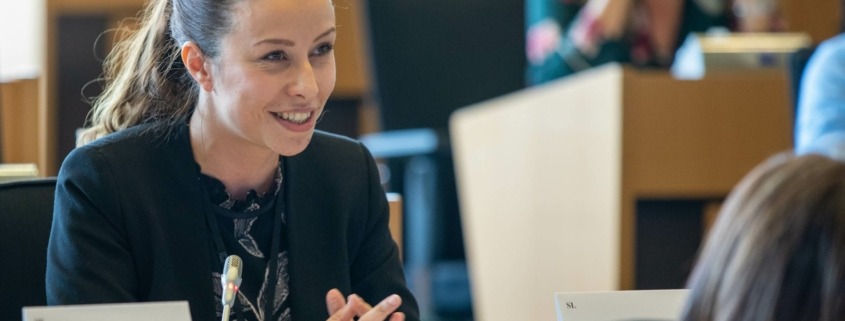Today the Committee on Culture adopted an important report, which I helped to draft on behalf of my Renew Europe Group.
The already much debated subject of the COVID-19 pandemic remains one of the most important issues on the EU agenda. And rightly so. Over the last two years, we have been actively trying to tackle the acute immediate problems we have been facing across the Union, but now the focus is turning to tackling the long-term consequences the pandemic is leaving in its wake.
Young people, who have been marginalised and, in some places, completely forgotten during the pandemic, will be the most affected by its long-term consequences. They are among the most vulnerable groups in our society, given the importance of this developmental period in an individual’s life. External factors have a profound impact on the physical, cognitive, emotional and social development of adolescents, and their effects are felt throughout life.
As such, young people have been hit hardest by the coronavirus, which was accompanied with the closures of educational, cultural and sports institutions. This obviously had a negative impact on their socialisation, the quality of their education and their mental health.
Therefore, in order to improve the situation, the Committee on Culture and Education has drafted a report on the impact of COVID-19 closures of educational, cultural, youth and sports activities on children and young people in the EU. It is structured around three key pillars: education and mental health, culture and sport, and digital literacy and digital inclusion. Below, I will highlight some key points for each of them.
Education and mental health
The report highlights the need to return to in-person learning, while remote education should remain an alternative when in-person education cannot be delivered in a safe manner. It also stresses the need to recruit highly qualified teachers and educators who will promote mental health literacy in their work.
It calls on the European Commission and Member States to break the silence on mental health issues and launch a Europe-wide mental health awareness campaign in educational and vocational settings, which must give young people access to relevant information on mental health. This is the only way to overcome the stigma attached to mental disorders. In the meantime, it urges Member States to develop national action plans to tackle mental disorders in children and adolescents through cross-sectoral investments, ensuring their implementation at the regional and local levels.
Culture and sport
As cultural institutions were the first to close and the last to open, young artists were deprived of opportunities to develop their careers. The report therefore calls on the European Commission to ensure that the Resilience and Recovery Fund provides young creators with adequate co-funding for projects and the appropriate conditions to develop their skills, and to support young artists’ entrepreneurship, including by granting them the professional status of cultural and creative workers. At the same time, the report calls for greater inclusion of all forms of creative expression in the educational processes of young people, as this has an important impact on the development of critical thinking and interdisciplinary skills.
Digitalisation and digital literacy
Technology and digital tools have – and will continue to have – an enormous impact on our daily lives. It is right that we use their potential to our advantage, which is why the report highlights that digital technology has great potential to support education as a tool for both teachers and learners, as it can provide accessible, open, social and inclusive learning pathways for all through innovative teaching methods. It can strengthen the role of teachers and equip citizens with key competences for later life.
And of course, the report does not ignore the need for adequate regulation to protect users, both in terms of personal data protection and in terms of controlling digital learning, which can lead to addiction and mental health problems. It also calls for digital literacy to be integrated into the educational process and for all pupils, especially those from economically vulnerable households, to be provided with appropriate digital equipment.
Unfortunately, as the full impact of the pandemic is still unknown, the European Commission is invited to carry out a study with a comprehensive assessment of the long-term effects of all pandemic-related preventive measures taken by Member States on children and young people. Such a study will allow us to develop appropriate and effective measures and to be better prepared in the event of future crises.
I have highlighted just a few important parts of the adopted report, which covers much more and is a good basis for developing concrete solutions through legislative initiatives or action plans. I am proud to have been involved in its preparation and am confident that the calls and solutions proposed will be well received and, above all, that they will make a real contribution to tackling the consequences of the pandemic.





Leave a Reply
Want to join the discussion?Feel free to contribute!